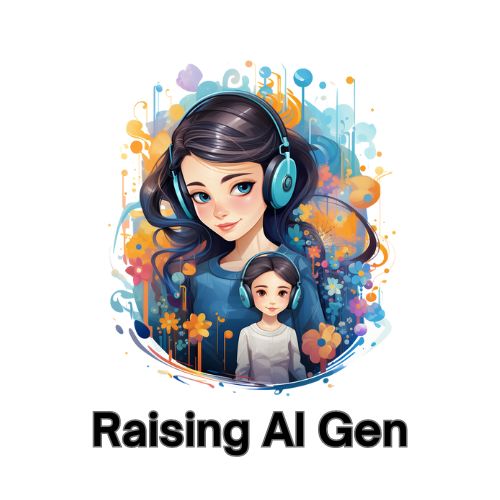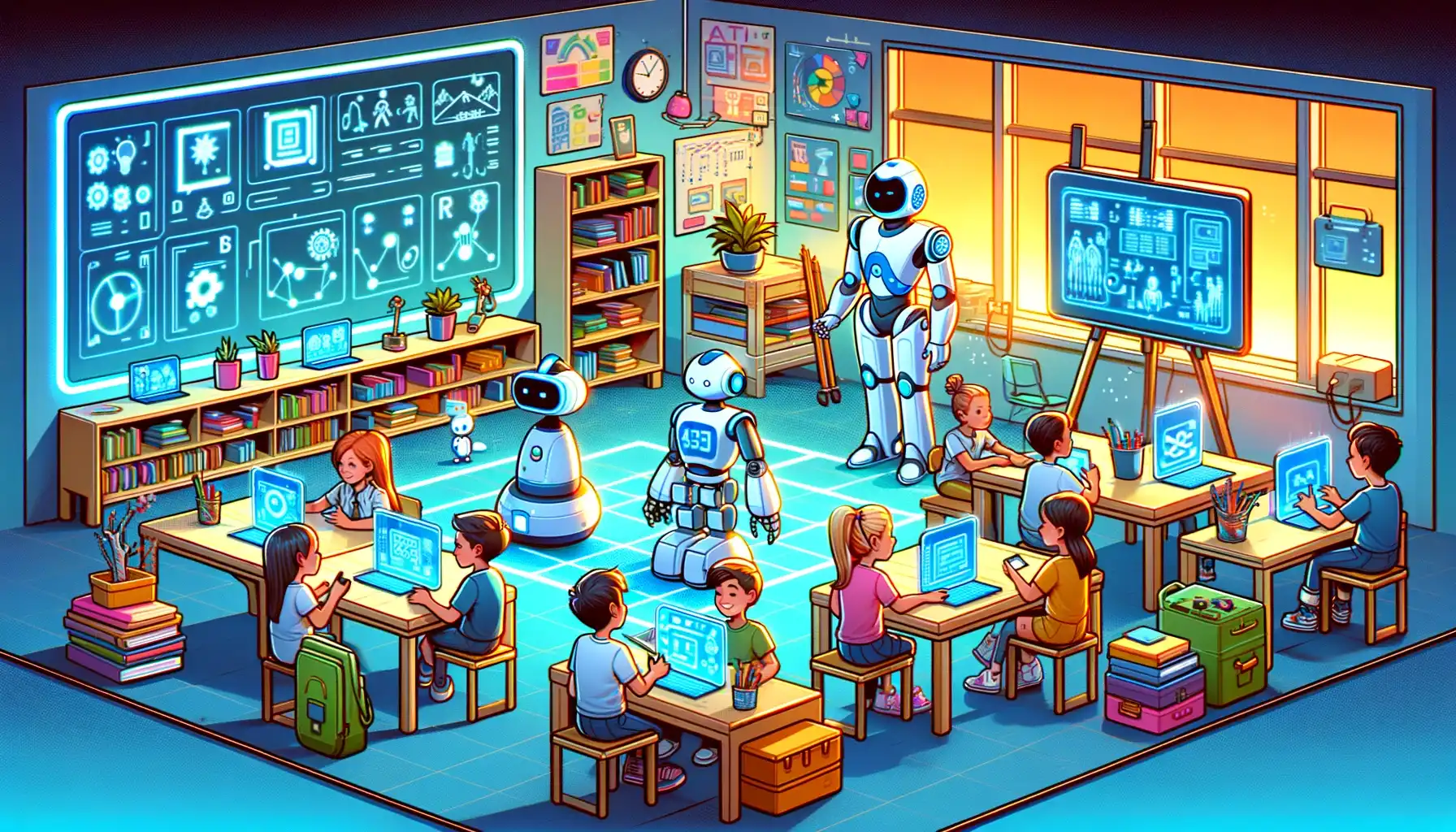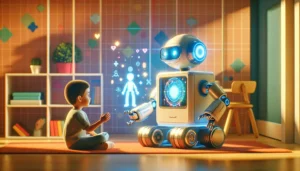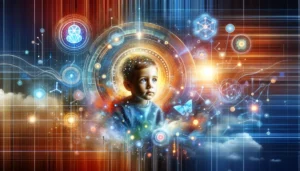In an age where technology marches forward with steadfast determination, the concept of playtime has undergone a radical transformation. Gone are the days of unidirectional toys that repeat the same functions ad infinitum. Enter the era of AI in managing children’s activities, an epoch where artificial intelligence for managing kids’ activities is becoming an increasingly tangible reality. These intelligent robots, endowed with advanced technology, are not only reshaping play but also smart technology for scheduling children’s activities.
Parents searching for innovative means of organizing their children’s schedules can now look towards virtual assistants in children’s activity management, such as Miko, Roybi, Moxie, and Zivko. These AI companions offer personalized and adaptive experiences, integrating advanced technology for streamlining kids’ tasks into the realm of play. Let’s unlock the potential of these technological marvels, as they guide the infinite possibilities of a child’s imagination and development.
Key Takeaways
- Intelligent robots are transforming the landscape of children’s playtime through personalized interactions.
- AI-powered companions can adapt over time to a child’s preferred interaction style and educational needs.
- These virtual assistants for managing kids’ activities augment emotional intelligence and foster cognitive growth.
- Parents can make use of smart technology to proficiently organize their children’s schedules and learning journeys.
- The emergence of AI companions marks a significant advancement in providing educational support with a personalized touch.
AI in Managing Children’s Activities: Transforming Playtime with Technology
In an era where every aspect of our lives seems punctuated by digital innovation, it should come as no surprise that the domain of childhood play is experiencing its own tech-led renaissance. With the advent of AI solutions for managing children’s programs, the days of monotonous play are giving way to an interactive and intuitive form of learning and development.
Parents and educators alike are turning to machine learning in children’s activity management to enrich playtime, transforming it into an opportunity for growth. AI has the potential to customize activities based on a child’s interests and developmental stage, fostering a love for learning and knack for creativity that could follow them into adulthood.
- AI robots and applications designed to teach life skills offer a plethora of digital tools for organizing kids’ activities. By gamifying the learning process, these tools make education a seamless and enjoyable experience.
- Within this realm, active play is heralded for its dual benefits: health and education. Machine learning algorithms can guide children through exercise regimes and cognitive tasks, ensuring both their mental and physical well-being.
- The use of digital tools for organizing kids’ activities is proving vital in reversing the decline of physical activity among the youth. By customizing playtime to be more dynamic and engaging, AI is at the frontline of combating sedentariness in children.
Constructing the bridge between entertainment and education, these intelligent systems cleverly integrate essential life skills into fun-filled activities. Through interactive robots that participate in storytelling, dancing, and sports, children can develop socio-emotional skills and a well-rounded intellect in ways traditional toys never could.
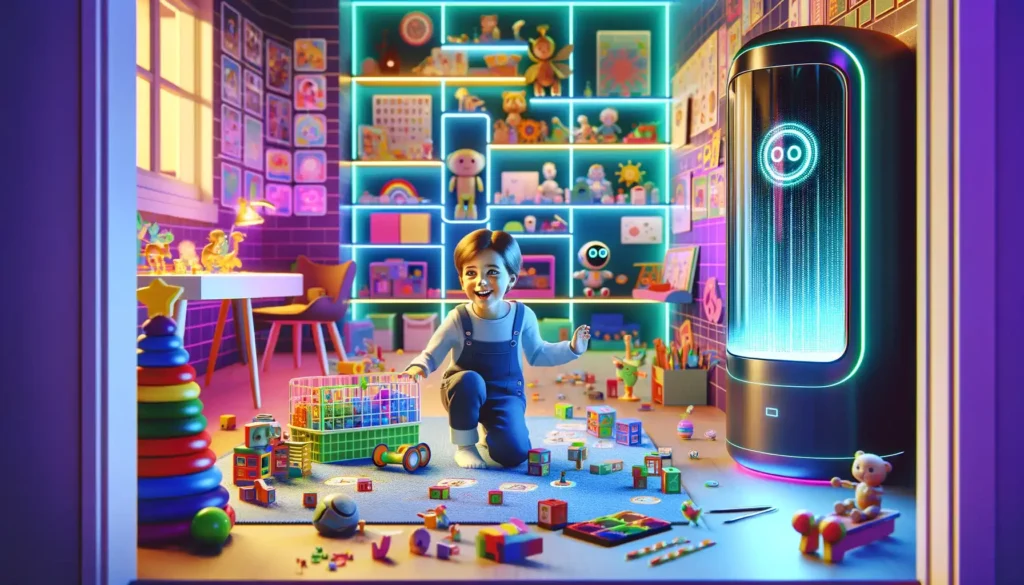
It’s an innovative movement where the efficacy of play is no longer just anecdote-driven; it’s now backed by data and machine intelligence. As we tread further down this digital path, we see a burgeoning cohort of AI assistants, at the ready to make learning an invigorating aspect of every child’s day-to-day life. The integration of AI into managing children’s activities isn’t just a technological update—it’s a holistic approach to nurturing versatile, future-ready minds.
The Role of Artificial Intelligence in Enhancing Kids’ Development
The integration of Artificial Intelligence (AI) into the sphere of child development marks a pioneering leap towards nurturing the multifaceted growth of the younger generation. Utilizing AI solutions for managing children’s programs and automated systems for managing kids’ tasks, technology stands at the fore, reshaping the very essence of education and engagement.
With the strategic placement of virtual assistants in children’s activity management, playtime has evolved into an opportune moment for fostering essential life skills. These innovative tools are revolutionizing traditional concepts of childhood development by offering advanced platforms for interactive learning and emotional growth. Let’s delve into how these digital tools for organizing kids’ activities promise to deliver a comprehensive educational experience.
Social and Emotional Learning with AI Companions
Transcending beyond mere academics, AI companions such as the emotionally intelligent robot Moxie pave a path to enhance the social and emotional acumen of children. By engaging in humanlike dialogues and displaying a spectrum of responses, these AI companions equip children with valuable insights into emotional intelligence. Smart technology for scheduling children’s activities thereby extends to the realm of personal development, underpinning the role of artificial intelligence in molding future generations.
Through interaction with AI companions, children learn to decipher social cues and engage in meaningful relationships, a foundation particularly beneficial for those facing developmental hurdles. The importance of these interactions is amplified by research substantiating advanced technology for streamlining kids’ tasks as a means to bolster social competencies, emphasizing AI’s pivotal role in interactive learning.
Educational Benefits of AI-Integrated Play
In the academic domain, AI-integrated play has emerged as a crucible of cognitive expansion. By blending play with progressive learning experiences, AI toys encourage children to embrace their natural curiosity. Entwined with the fabric of play, these AI companions seamlessly introduce complex concepts like mathematics, coding, and language skills.
Reinforcing these educational sessions are interactive AI-enabled dolls and robots, which personalize the content to suit the evolving needs of each child. Harnessing the potential of AI solutions for managing children’s programs, these toys have shown a direct correlation with academic success, emphasizing their significance in the developmental journey of a child.
AI Toys as Tools for Inclusive Learning
Digital advancements in play bring forth an unprecedented era of inclusivity, where children across a spectrum of abilities can benefit from customized educational experiences. AI toys ensure that no learner is left behind, providing accessible and adaptable pathways into the realms of STEM and beyond.
As inclusive agents of learning, AI toys exemplify the democratization of education by accommodating individual learning styles and bridging gaps across various demographics. This harmonization of individual progress with technological finesse illustrates the magnum opus of AI in championing inclusive learning for all children.
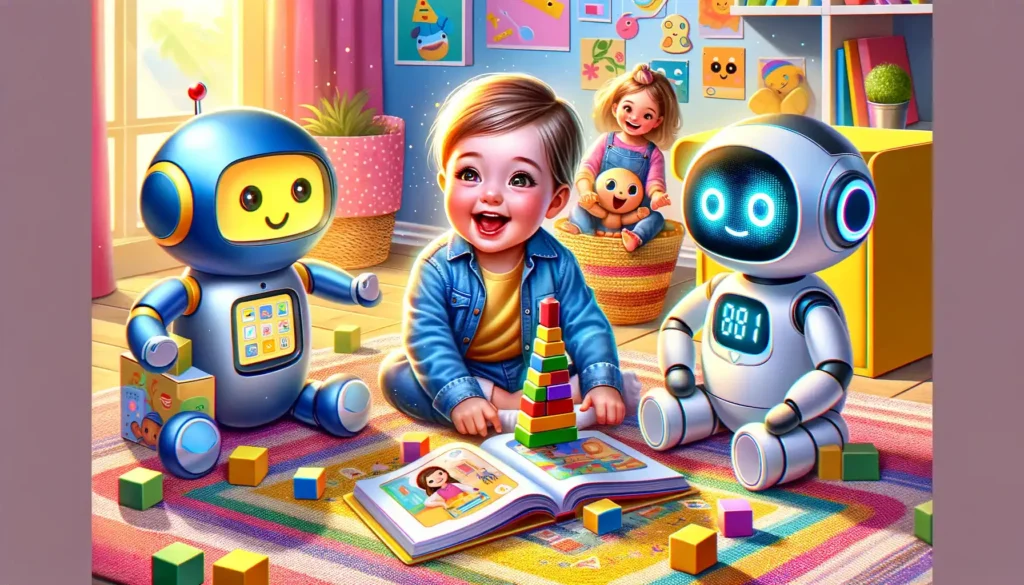
The journey into the world of AI-enabled child development continues to unveil layers of potential — each more promising than the last. These smart solutions not only tailor learning experiences but also craft emotional landscapes conducive for holistic growth. As we embrace this paradigm shift, we witness the dawn of an era where the alliance of AI and play orchestrates a symphony of innovation and nurturing, indispensable for crafting the future.
Understanding the Implications of AI in Child Interaction
The application of artificial intelligence for managing kids’ activities is certainly groundbreaking, but it ushers in complex discussions around societal impact and ethical considerations. While robots like Moxie provide dynamic interaction that aids in developing emotional intelligence, the worrisome aspect of AI shaping our children’s social experiences cannot be ignored. Amidst the marvel of technology for organizing children’s schedules and the promise of efficient learning, we must consider the long-term implications on the innate nature of childhood play and growth. There exists the potential for AI entities to become preferred companions, thus inadvertently shifting the landscape of human interaction for the upcoming generation.
The influence of AI in managing children’s activities naturally extends to data privacy and the biases that may arise from algorithmic programming. With AI advancing at an expeditious rate, there’s concern about whether our grasp of its depth and breadth keeps pace. As devices become adept at molding the notions and behaviors of young users, the ethical dialogues surrounding these changes take on heightened importance. The ai in managing children’s activities carries with it the heavy responsibility of implementing unbiased, fair, and respectful paradigms that will shape constructive and inclusive social norms for our children.
As we step into the frontier of AI-assisted upbringing, we must also acknowledge the imperative need for regulatory oversight. The task before us is to carefully navigate the integration of these tools into our lives, ensuring they serve as beneficial aides rather than determinants of development. Harnessing the benefits without falling prey to the pitfalls will necessitate vigilance, ethical practice, and ongoing discourse. The balance between embracing the innovation of ai in managing children’s activities and safeguarding the essence of childhood is delicate; one that will define the contour of our society’s future.
Frequently Asked Questions
| Question | Answer |
|---|---|
| How does AI work for kids? | AI for kids typically involves technologies that adapt to children’s learning styles and preferences. It uses data-driven methods to provide personalized educational experiences, interactive learning games, and tools to assist with various learning needs. AI can also support children’s safety and well-being through monitoring and adaptive response systems. |
| What is an example of artificial intelligence for kids? | An example is a companion robot like Haru, designed by the Honda Research Institute, which interacts with children in educational settings. These robots can engage in storytelling, recognize emotional cues, and provide personalized interactions, enhancing the learning and social experience for kids. |
| How does AI help in teaching? | AI assists in teaching by personalizing learning experiences, automating administrative tasks, and providing insights into students’ learning progress. It enables educators to focus more on individual student needs and fosters a more interactive and engaging learning environment. For instance, AI can analyze a student’s performance and suggest tailored educational content and activities. |
| How AI can help management? | In the context of managing children’s activities, AI can streamline administrative tasks, optimize scheduling, and enhance communication between educators and parents. It assists in efficiently managing resources, tracking student progress, and providing actionable insights for improvement in educational settings. |
Further Reading
| Title | Link |
|---|---|
| AI for Educators | Read More |
| AI Personalized Learning | Read More |
| AI Tools for Teachers | Read More |
| AI Tools for Autism | Read More |
| Is There an AI for Mental Health? | Read More |
| AI for Family Security | Read More |
| AI for Language Learning | Read More |
| AI in Education Books | Read More |
| How is AI Used in Mental Health? | Read More |
